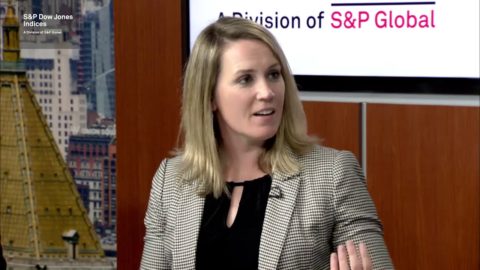Navigating Market Volatility:
HSWS Process Execution & Strategies for Uncertain Times
By: Allison Schmidt, Financial Advisor, CFP ®, CPA
Markets have experienced significant volatility since “Liberation Day” on April 2nd, when President Donald Trump announced plans to impose tariffs on all U.S. trading partners. This decision sparked global concerns that a trade war could trigger a recession.
Given the recent market decline, we wanted to touch base for a couple of reasons. First, we’d like to share some details about a recent purchase we made in client portfolios. Second, we’ll cover two common questions we’ve been hearing from clients—just in case you’ve been wondering about the same things!
Higgins & Schmidt Wealth Strategies Investment Process Purchase Triggered for 2nd Time in 2025.
Since the recent tariff announcement from the White House, markets have experienced increased volatility. On April 7, the S&P 500 fell 20% from its February 2025 high, triggering our strategy to increase stock positions in client portfolios for the second time this year (See article: Finding Perspective & Opportunity Amid Market Volatility & Recession Fears discussing our first purchase). As a reminder, this methodical action of taking what the market gives allows us to capitalize on lower prices while maintaining suitable equity exposure aligned with our clients’ long-term financial goals

To the questions!
Given the market volatility, should we change our long-term strategy?
No. We create personalized portfolios and strategies with corrections, bear markets, and recessions in mind. These are common occurrences. Just like a well-designed game plan, effective financial strategies require both offense and defense. Our investment and income process (for people taking income from the portfolio) thoughtfully implement both. Offense happens now, and defense happened months and years before the correction.
On the defensive side, our strategy involves maintaining a robust portfolio capable of withstanding different phases of the market cycle. Stock market uncertainty and unexpected life events are inevitable, making defense a cornerstone to our process. As a part of that process, we systematically rebalance portfolios as the market rises (notably, we rebalanced three times in 2024 as the market grew), plan for future cash needs, and maintain diversification across all portfolios.
Offense involves seizing market opportunities that arise from changing conditions (see investment process purchase above). Ironically, periods of uncertainty can offer the most attractive asset prices and valuations, turning volatility into opportunity.
Ultimately, portfolios geared towards personal financial goals must have pre-established defense mechanisms, ready before any market correction occurs. Making changes to a long-term financial plan in the middle of a market decline is not advised. A favorite quote from Warren Buffet encapsulates our mindset: “Be greedy when others are fearful and fearful when others are greedy.” This underscores the value of maintaining a balanced offensive and defensive stance throughout different market environments.
What does the 90-day tariff pause mean for markets?
This is such an important question. On April 9th, the White House announced a 90-day pause on reciprocal tariffs for countries that have not retaliated with higher tariffs on U.S. goods. Tariffs will continue at a 10% rate for these countries.
There is still so much unknown and if this past week is any indication, we’ll see changes to outlook and learn more as we move through these next 90 days. As of writing this on April 9th, here are a few key points to highlight:
• Notably, this excludes China which has imposed tariffs on U.S. goods, and the U.S. has escalated its tariff rate on Chinese goods to 125%.
• The initial market reaction to this news has been positive across all major indices, including some of the largest intra-day market moves since 2020.
• This is because the announcement signals the president is willing to negotiate and lower tariff rates, after a week of taking a hardline stance on tariffs. This may mean that the escalating trade war that some investors fear is less likely.
• Despite this positive market move, it’s important to remain patient and maintain a longer-term perspective since the full impact of tariffs is still unknown. This environment is still challenging for businesses to make investment and hiring decisions, and for consumers who could potentially face higher prices.
In times like these, headlines can change quickly. In just a week, the stock market has fallen to near-bear market levels before bouncing back somewhat. As always, it’s important to stay disciplined by sticking to your personalized long-term financial strategies and resist the urge to react to day-to-day headlines.
Ending thoughts: We are being emotionally tested. The uncertainty, the volatility, the RED of the last week can lead investors to doubt their strategy and question whether cash is a better place to sit ‘while this all sorts out’. In those moments, remember that trying to time markets often leads to missed opportunities. As Peter Lynch noted, “far more money has been lost by investors trying to anticipate corrections, than lost in the corrections themselves.” We knew such a day was coming. Sharp market downturns are a surprise only in their timing, not in their occurrence. This day was coming because it always comes. What matters most now is how we’ve prepared (defensive stance) and how we respond moving forward (tactical offense). History is clear: don’t chase the markets because they are wild and unpredictable in times like these. As Joe Davis, Vanguard’s Chief Economist reminds, “Eventually, and not necessarily in this order, volatility subsides, markets bottom, and dances (recessions) end.”
As always, please do not hesitate to reach out if you have any questions or if there is anything we can be doing for you and your family. Steve and I understand that uncertain times can be unsettling, and may lead our clients to reconsider their strategies, future plans, or portfolios. We strive to be proactive and readily available to our clients during periods of uncertainty.
Securities offered through LPL Financial, Member FINRA/SIPC. Investment advice offered through Higgins & Schmidt Wealth Strategies, a registered investment advisor and separate entity from LPL Financial.
The opinions voiced in this material are for general information only and are not intended to provide specific advice or recommendations for any individual. All performance referenced is historical and is no guarantee of future results. There is no guarantee that a diversified portfolio will enhance overall returns or outperform a non-diversified portfolio. Diversification and asset allocation does not ensure a profit or protect against a loss. Stock investing involves risk including loss of principal. All indices are unmanaged and may not be invested into directly.
Rebalancing a portfolio may cause investors to incur tax liabilities and/or transaction costs and does not assure a profit or protect against a loss.
The Standard & Poor’s 500 Index is a capitalization weighted index of 500 stocks designed to measure performance of the broad domestic economy through changes in the aggregate market value of 500 stocks representing all major industries









